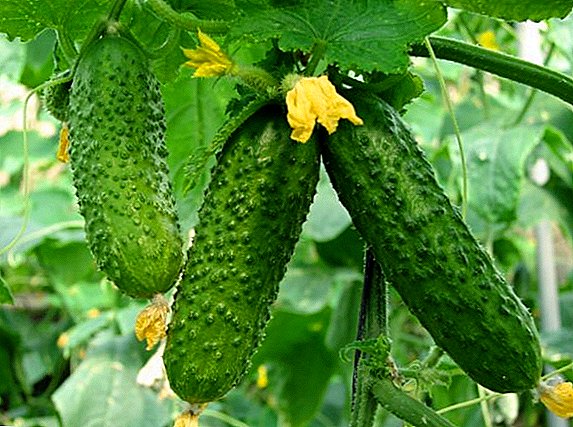 One of the most well-known and most commonly used drugs in the pigeon farming industry is Rodothium, a broad-spectrum antibiotic. Information on the composition, indications and method of use of the drug will be discussed in detail in the presented material.
One of the most well-known and most commonly used drugs in the pigeon farming industry is Rodothium, a broad-spectrum antibiotic. Information on the composition, indications and method of use of the drug will be discussed in detail in the presented material.
Description, composition, release form
"Rodotium" is a small cream-yellow granules with a characteristic mild smell. The active active ingredient in the composition is tiamulin fumarate from the group of diterpene antibiotics that suppress pathogens in pigeons and other birds. Excipients: povidone, lactose monohydrate.  Rodotium is packaged in several ways: into polypropylene cans or plastic bags (100 pieces each) and glass bottles (liquid form of the preparation, 10% solution). Another option involves the sale of pellets by weight - 1 or 10 kilograms in thick paper bags, which greatly facilitates the purchase of large bird farms and farms.
Rodotium is packaged in several ways: into polypropylene cans or plastic bags (100 pieces each) and glass bottles (liquid form of the preparation, 10% solution). Another option involves the sale of pellets by weight - 1 or 10 kilograms in thick paper bags, which greatly facilitates the purchase of large bird farms and farms.
You will also be interested to learn how to use drugs such as Virosalm, La Sota, Nifulin Forte, as well as other medicines and vitamins for pigeons.
What diseases are used
Due to the wide range of actions, the drug successfully copes with various bacterial and viral infections in pigeons. It is also used for prophylactic purposes. The destructive influence extends to the maximum:
- mycoplasma;
- brachyspirs;
- spirochetes;
- gram-positive and some gram-negative microorganisms.

How to give pigeons
The dosage of "Rodotium" is calculated depending on the purpose (prevention or treatment), as well as the severity and extent of the disease. The method of application involves the individual treatment of one individual or a whole group of pigeons (when the drug is injected into the common drinker).
Read about what drugs are used to make poison for pigeons.
When mycoplasmal lesions of the body, "Rodotium" is used in a dose of 0.067-0.11 g per 1 kg of pigeon weight - this corresponds to a rate of 30-50 mg / kg of tiamulin. A positive effect in the treatment is quickly achieved when using this scheme: 1.1 g of the drug is dissolved in 2 liters of pure water. Daily dose per individual of 0.025% tiamulin solution over 3-5 days.
After use, the drug is rapidly absorbed into the gastrointestinal tissue and penetrates into all organs. The action lasts for two days, the maximum concentration is reached 4 hours after ingestion. 
Compatibility with other drugs
"Rodotium" is not recommended to be combined with antibiotics of the aminoglycoside group and ionophore coccidiostatics ("Monensin", "Salinomycin", "Narasin"). The simultaneous use of these drugs can cause birds: diarrhea, paresis, anorexia, or severe nephrotoxic effects.
We advise you to familiarize yourself with the list of diseases of pigeons that are transmitted to humans.
Contraindications
Long-term veterinary practice and the study of individual reactions in pigeons shows that the birds have no specific contraindications to the use of "Rodotium". However, before treatment, the breeder should consult with a veterinarian. With caution, the drug is prescribed to individuals who previously showed symptoms of diseases of the kidneys and liver. 
Shelf life and storage rules
Store the drug should be in a dry, dark place in a tightly closed package, away from children and animals. Also, there should be no food or food nearby. The optimal storage temperature is from 0 to + 25 ° С. Shelf life - 2 years. Preparation of the solution with an antibiotic provides several important rules:
- dilute the solution should be in rubber gloves and a protective mask;
- at the time of cooking is not allowed to drink, eat or smoke;
- After handling the medicine, wash your hands thoroughly with soap and rinse your face.
Periodic vaccination of pigeons is an important measure to preserve the health of birds. Learn from which diseases and how to vaccinate pigeons.
Analogs
Identical drugs in composition and action with "Rodotium" are:
- Tylosin 50;
- "Tilokolin".
 Unfortunately, even the most well-groomed pigeons living in well-organized conditions are subject to various unpleasant and dangerous diseases.
Unfortunately, even the most well-groomed pigeons living in well-organized conditions are subject to various unpleasant and dangerous diseases.Consider the most popular species and breeds of pigeons, and in particular the Volga band, tippler, duty, peacock pigeons and Uzbek fighting pigeons.
Existing drugs successfully help to cope with ailments, but the best option would be to prevent possible diseases by timely vaccination.












